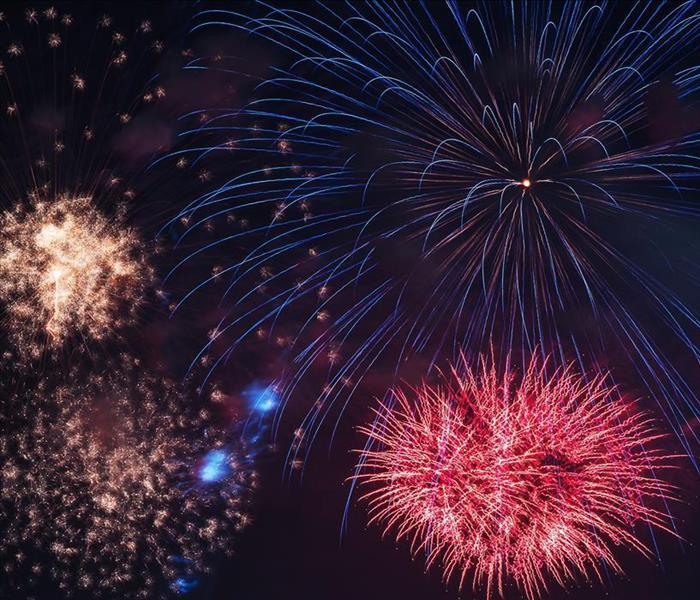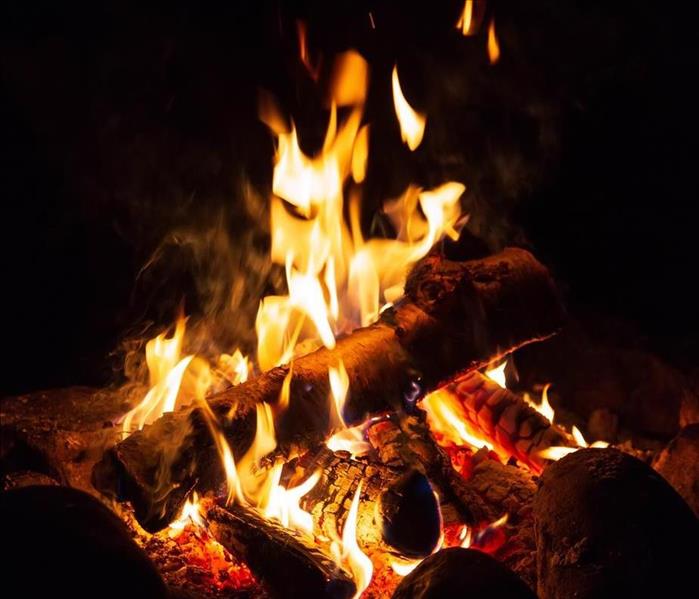Fire Risk During the Winter
1/9/2025 (Permalink)
 Fires can happen at any time, but they’re more common during the colder winter months.
Fires can happen at any time, but they’re more common during the colder winter months.
House fires are common in the United States—something millions of Americans will deal with over the next year. And that number likely includes members of the community here. SERVPRO® is here to help you and your family if your home suffers fire damage. Our team is prepared to help you remediate and repair in the aftermath of a fire.
Why Your Risk Is Higher During the Winter
Fires can happen at any time, but they’re more common during the colder winter months—especially where residents may need to use furnaces, space heaters and more to heat their homes. Here are some household risks during the winter.
- Space heaters without automatic shutoff functions can topple over.
- Candles left burning can fall over if a family member or guest knocks on the wrong table.
- Kitchen fires happen more often, as many home chefs are creating special treats for the holidays.
- Christmas tree accidents cause numerous fires every year.
- Broken furnaces and issues with appliances can also happen throughout cold winter months.
Celebrate the 4th of July with Safety in Mind
6/7/2024 (Permalink)
 Celebrating the 4th of July can be a blast – literally.
Celebrating the 4th of July can be a blast – literally.
Celebrating the 4th of July can be a blast – literally. When getting ready to celebrate the long weekend, it’s important to take note of the proper safety precautions to avoid series injury or potential fire hazards when grilling or setting off fireworks to celebrate Independence Day.
Tips for Grilling Safely
- Keep your grill at least 10 ft. away from the walls of your home, garage, etc.
- Never leave a lit grill unattended.
- Never add starter fluid to ignited coals.
- Use long-handed grilling equipment to avoid getting burned.
Safely Setting Off Fireworks
- Stay at lease 500 ft. away from a public, live firework show.
- Keep a fire extinguisher or a supply of water nearby in case any fireworks do cause a fire.
- Never hold any part of your body directly over a firework as you light them to avoid burning your hands, face, chest, etc.
- Keep fireworks out of the reach of children. Always keep children within your sight if they are playing with sparklers.
- If a firework does not go off, do not attempt to light it again.
If an unavoidable fire disaster does occur to your property, know that SERVPRO® is available 24/7/365 to help you with every step of the fire restoration process.
Bonfire Season Is Coming
6/7/2024 (Permalink)
 Follow these tips to have fun and safe summer nights!
Follow these tips to have fun and safe summer nights!
Surrounding a campfire with loved ones creates special memories that you can cherish forever. Putting forth safety measures when having a bonfire can lessen the chances of having fire related injuries and property damage. Follow these tips to have fun and safe summer nights!
Starting the Fire
- Make sure your fire pit is enclosed and there is enough room for a seating area.
- Make sure that your bonfire is 10 feet away from your home or any structures.
- Do not use gasoline or lighter fluid to start or light the bonfire.
Bonfire Safety
- Keep a bucket of water or hose handy in case of emergencies.
- Do not leave the bonfire unattended.
- Keep children and pets away from the bonfire.
- Do not throw fireworks into the bonfire.
- Do not burn aerosols or anything that may produce toxic fumes or explode.
Putting Out the Fire
- Slowly pour water over the ashes and check to be sure that the fire is completely out.
- Use a shovel to spread out the ashes to let them cool down.





 24/7 Emergency Service
24/7 Emergency Service

